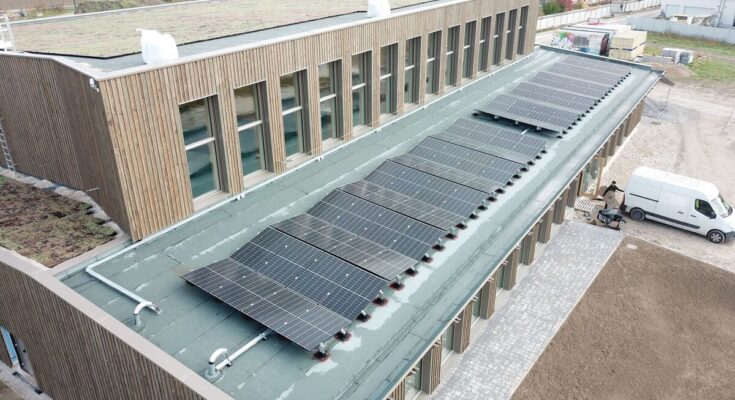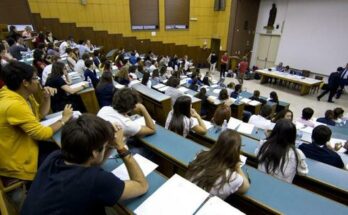Nature and biodiversity are the key to this village of 1,000 people. In 2021, Val-de-Vesle (Marne) has been named “Best Village for Biodiversity”. Four years later, the city continues its efforts for the benefit of the planet.
Located 20 km from Reims, the mayor of this village, Serge Hiet, is not his first attempt. Various actions have been carried out: planting orchards in villages, nature excursions through LPO, rehabilitation of swamps, creation of communal gardens… The aim is to reconnect residents with their environment.
Wooden cladding, green roof…
Soon to be delivered to its users, the latest project, and no less important, is a certified passive gymnasium, the first of its kind in France. It stands proudly on the outskirts of the village with wooden cladding and a green roof. “In the construction process, we ask ourselves questions about the environment. We ask ourselves how we can do, at our level, to fight climate change and increase biodiversity,” said Serge Hiet.
Therefore, the municipality is committed to creating exemplary buildings that will consume no more than 15 kWh per square meter per year. It is a technological feat because the 1,200 m2 gymnasium is completely airtight from outside air.
“We will never feel too cold and never too hot inside. It is completely insulated with 40 to 60 cm thick wood wool to eliminate all thermal bridges. And this is due to double ventilation,” he comments. A “bioclimatic” building, facing south, that does not house any boilers. No fuel, no wood, no gas…
“We free ourselves from energy price fluctuations”
“Beyond the environmental aspect, we are free from fluctuations in energy prices. For the municipal budget, it is important not to risk being overwhelmed by the costs of this new equipment.”
The interesting thing is that the gym will produce more energy than it consumes thanks to its 80 photovoltaic panels. The only drawback is that the construction of this building will cost 30% more than the so-called “classic” construction. However, of the total cost of 4 million euros, 80% is subsidized by the State, Greater Reims, departments, regions and Europe. The inauguration is planned for spring 2026, a few weeks after the election. The mayor, if re-elected, would begin his third term.



